Families and even countries have systemic and generational patterns that need to be understood, in order to become more healthy and even transformative. Charles Dickens was deeply loved by the American people, then deeply resented when he told them in his 1841 book American Tales what he saw, and finally loved again after the Civil War, when they bought over a million of his book Christmas Carol, saving him from bankruptcy.
After the often agonizing and endless American election, Dickens’ wise words are well worth pondering, regardless of one’s political preferences.
American Tales, Chapter XVIII, Concluding Remarks
“(Americans) are by nature, frank, brave, cordial, hospitable, and affectionate. Cultivation and refinement seem but to enhance their warmth of heart and ardent enthusiasm; and it is the possession of these later qualities in a most remarkable degree, which renders an educated American one of the most endearing and most generous of friends. I never was so won upon, as by this class; never yielded up my full confidence and esteem so readily and pleasurably, as to them; never can make again, in half a year, so many friends for whom I seem to entertain the regard of half a life.
These qualities are natural, I implicitly believe, to the whole people. That they are, however, sadly sapped and blighted in their growth among the mass; and that there are influences at work which endanger them still more, and give but little present promise of their healthy restoration, is a truth that ought to be told.
It is an essential part of every national character to pique (i.e. pride) itself mightily upon its faults, and to deduce tokens of its virtue or its wisdom from their very exaggeration. One great blemish in the popular mind of America, and the prolific parent of an innumerable brood of evils, is Universal Distrust. Yet the American citizen plumes (i.e. prides) himself upon this spirit, even when he is sufficiently dispassionate to perceive the ruin it works; and will often adduce it, in spite of his own reason, as an instance of the great sagacity and acuteness of the people, and their superior shrewdness and independence.
‘You carry,’ says the stranger, ‘this jealousy and distrust into every transaction of public life. By repelling worthy men from your legislative assemblies, it has bred up a class of candidates for the suffrage, who, in their very act, disgrace your Institutions and your people’s choice. It has rendered you so fickle, and so given to change, that your inconstancy has passed into a proverb; for you no sooner set up an idol firmly, than you are sure to pull it down and dash it into fragments: and this, because directly you reward a benefactor, or a public servant, you distrust him, merely because he is rewarded; and immediately apply yourselves to find out, either that you have been too bountiful in your acknowledgments, or be remiss in his deserts. Any man who attains a high place among you, from the President downwards, may date his downfall from that moment; for any printed lie that any notorious villain pens, although it militates directly against the character and conduct of a life, appeals at once to your distrust, and is believed. You will strain at a gnat in the way of trustfulness and confidence, however fairly won and well deserved; but you will swallow a whole caravan of camels, if they be laden with unworthy doubts and mean suspicions. Is this well, think you, or likely to elevate the character of the governors or the governed, among you?’
The answer is invariably the same: ‘There’s freedom of opinion here, you know. Every man thinks for himself, and we are not to be easily overreached. That’s how our people come to be suspicious.’
Another prominent feature is the love of ‘smart’ dealing: which gilds over many a swindle and gross breach of trust; many a defalcation (i.e. misappropriation), public and private; and enables many a knave to hold his head up with the best, who well deserves a halter (i.e. noose); though it has not been without its retributive operation, for this smartness had done more in a few years to impair the public credit, and to cripple the public resources, than dull honesty, however rash, could have effected in a century. The merits of a broken speculation, or a bankruptcy, or of a successful scoundrel, are not gauged by its or his observance of the golden rule ‘Do unto others as you would be done by,’ but are considered with reference to their smartness. I recollect, on both occasions of our passing that ill-fated Cairo on the Mississippi, remarking on the bad effects such gross deceits must have been when they exploded, in generating a want of confidence abroad, and discouraging foreign investment: but I was given to understand that this was a very smart scheme by which a deal of money was made: and that its smartest feature was that they forgot these things abroad in a very short time, and speculated again as freely as ever. The following dialogue I have held a hundred times: ‘Is it not a very disgraceful circumstance that such a man as So-and-so should be acquiring a large property by the most infamous and odious means, and not withstanding all the crimes of which he has been guilty, should be tolerated and abetted by your Citizens? He is a public nuisance, is he not?’ ‘Yes, Sir.’ ‘A convicted liar?’ ‘Yes, Sir.’ ‘He has been kicked and cuffed and caned?’ ‘Yes, Sir.’ ‘And he is utterly dishonorable, debased, and profligate?’ ‘Yes, Sir.’ ‘IN the name of wonder, then, what is his merit?’ ‘Well, Sir, he is a smart man.’
In like manner, all kinds of deficient and impolitic usages are referred to the national love of trade; though oddly enough it would be a weighty charge against a foreigner that he regarded the Americans as a trading people. The love of trade is assigned as a reason for that comfortless custom, so very prevalent in country towns, of married people living in hotels, having no fireside of their own, and seldom meeting from early morning until late at night, but at the hasty public meals. The love of trade is a reason why the literature of America is to remain for ever unprotected: ‘For we are a trading people, and don’t care for poetry:’ though we do, by the way, profess to be very proud of our poets: while healthy amusements, cheerful means of recreation, and wholesome fancies, must fade before the stern utilitarian joys of trade.
These three characteristics are strongly represented at every turn, full in the stranger’s view. But the foul growth of America has a more tangled root than this; and it strikes its fibres, deep into its licentious Press.
Schools may be erected, East, West, North and South; pupils may be taught, and masters reared, by scores upon scores of thousands; colleges may thrive, churches may be crammed, temperance may be diffused, and advancing knowledge in all other forms walk through the land with giant strides: but while the newspaper press of America is in, or near, its present abject state, high moral improvement in that country is hopeless. Year by year, it must and will go back; year by year, the tone of public feeling must sink lower down; year by year, the Congress and the Senate must become of less account before all decent men; and year by year, the memory of the Great Fathers of the Revolution must be outraged more and more, in the bad life of their degenerate child.
Among the herd of journals that are published in the States, there are some, the reader scarcely needs be told, of character and credit. From personal intercourse with accomplished gentlemen connected with publications of this class, I have derived both pleasure and profit. But the name of these is Few, and of the others Legion; and the influence of the good, is powerless to counteract the moral poison of the bad.
Among the gentry of America; among the well-informed and moderate: in the learned professions; at the bar and on the bench: there is, as there can be, but one opinion, in reference to the vicious character of these infamous journals. It is sometimes contended — I will not say strangely, for it is natural to seek excuses for such a disgrace — that their influence is not so great as a visitor would suppose. I must be pardoned for saying there is no warrant for this plea, and that every fact and circumstance tends directly to the opposite conclusion.
When any man, of any grade of desert in intellect or character, can climb to any public distinction, no matter what, in America, without first groveling down upon the earth, and bending the knee before this monster of depravity; when any private excellence is safe from its attacks; when any social confidence is left unbroken by it, or any tie of social decency and confidence is held in the least regard; when any man in that free country has freedom of opinion, and presumes to think for himself, and speak for himself, without humble reference to a censorship which, for its rampant ignorance and base dishonesty, he utterly loathes and despises in his heart; when those who most acutely feel its infamy and the reproach it casts upon the nation, and who most denounce it to each other, dare to set their heels upon, and crush it openly, in the sight of all men: then, I will believe that its influence is lessening, and men are returning to their manly senses. But while that Press has its evil eye in every house, and its black hand in every appointment in the state, from a president to a postman; while, with ribald slander for its only stock in trade, it is the standard literature of an enormous class, who must find their reading in a newspaper, or they will not read at all; so long must its odium be upon the country’s head, and so long must the evil it works, be plainly visible in the Republic.”
P. S. Click this Amazon link to view for free the first two chapters of our new novel Blue Sky.
“I’m afraid there’s been an accident…”
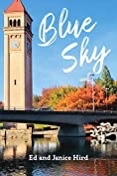 Sandy Brown and her family have just moved to Spokane, Washington where her husband, Scott, is pastoring a new church. With a fresh start, Sandy is determined to devote more time to her four children. But, within weeks of settling in their new life, the Brown family is plunged into turmoil.
Sandy Brown and her family have just moved to Spokane, Washington where her husband, Scott, is pastoring a new church. With a fresh start, Sandy is determined to devote more time to her four children. But, within weeks of settling in their new life, the Brown family is plunged into turmoil.
Sandy receives shocking news that her children aren’t safe, which brings back haunting memories of the trauma she experienced as a girl. Then, the unthinkable happens…
A brutal attack puts Sandy on the brink of losing everything she’s loved. Her faith in God and the family she cherishes are pushed to the ultimate limit.
Is healing possible when so many loved ones are hurt? Are miracles really possible through the power of prayer? Can life return to the way it was before?
Blue Sky reveals how a mother’s most basic instinct isn’t for survival… but for family.
If you’re a fan of Karen Kingsbury, then you’ll love Blue Sky. Get your copy today on paperback or kindle.
-Click to check out our marriage book For Better For Worse: discovering the keys to a lasting relationship on Amazon. You can even read the first two chapters for free to see if the book speaks to you.
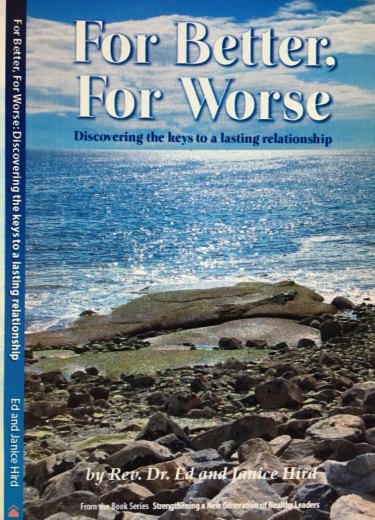
-The sequel book Restoring Health: body, mind and spirit is available online with Amazon.com in both paperback and ebook form. Dr. JI Packer wrote the foreword, saying “I heartily commend what he has written.” The book focuses on strengthening a new generation of healthy leaders. Drawing on examples from Titus’ healthy leadership in the pirate island of Crete, it shows how we can embrace a holistically healthy life.
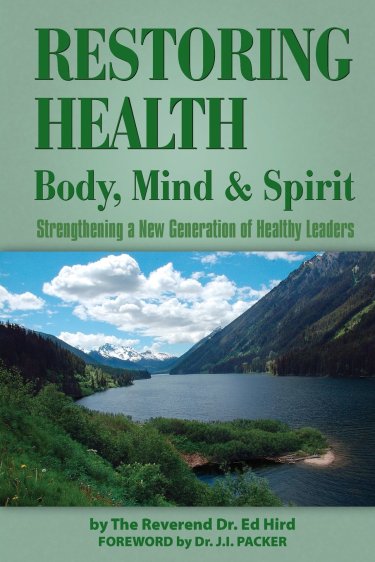
In Canada, Amazon.ca has the book available in paperback and ebook. It is also posted on Amazon UK (paperback and ebook), Amazon France (paperback and ebook), and Amazon Germany (paperback and ebook).
Restoring Health is also available online on Barnes and Noble in both paperback and Nook/ebook form. Nook gives a sample of the book to read online.
Indigo also offers the paperback and the Kobo ebook version. You can also obtain it through ITunes as an IBook.
To receive a personally signed copy within North America, just etransfer at ed_hird@telus.net, giving your address. Cheques are also acceptable.
-Click to purchase the Companion Bible Study by Jan Cox (for the Battle of the Soul of Canada) in both paperback and Kindle on Amazon.com and Amazon.ca
Indigo also offers the paperback and the Kobo ebook version. You can also obtain it through ITunes as an IBook.
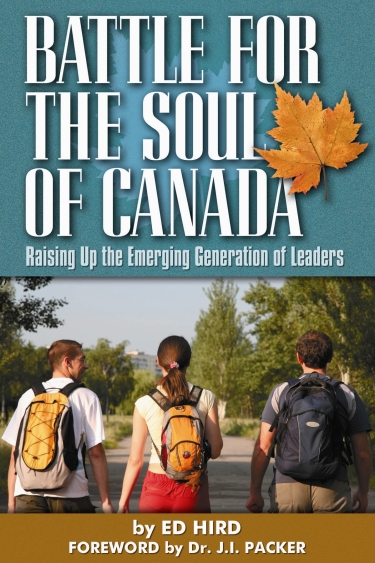
-Click to purchase the Companion Bible Study by Jan Cox (for the Battle of the Soul of Canada) in both paperback and Kindle on Amazon.com and Amazon.ca
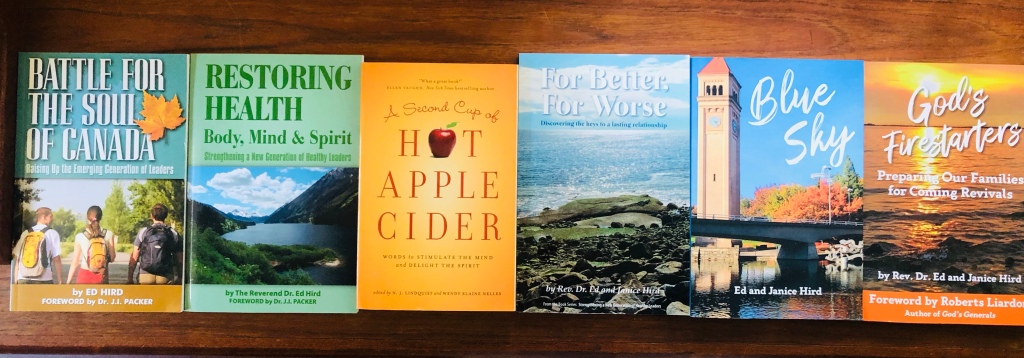






 Easter for Dickens was about great expectations, about Jesus’ resurrection love: “No one ever loved all people so well and so truly as He did.”
Easter for Dickens was about great expectations, about Jesus’ resurrection love: “No one ever loved all people so well and so truly as He did.” commenting that the resurrected Jesus “was seen by five hundred of his followers at once, and He remained with others of them forty days.”
commenting that the resurrected Jesus “was seen by five hundred of his followers at once, and He remained with others of them forty days.”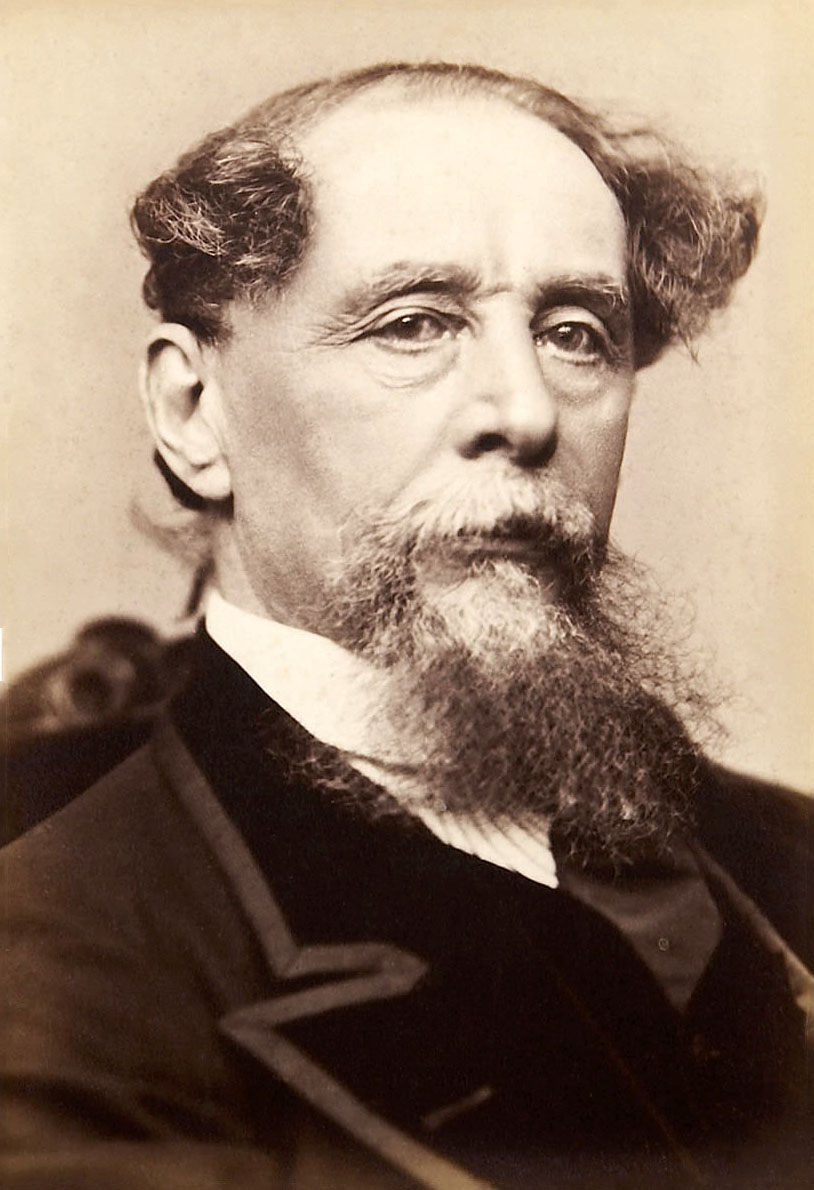
 Despite his high ideals, Dickens was often tempted to be a Scrooge.
Despite his high ideals, Dickens was often tempted to be a Scrooge. had a partition built in their bedroom, cutting himself off from his wife.
had a partition built in their bedroom, cutting himself off from his wife.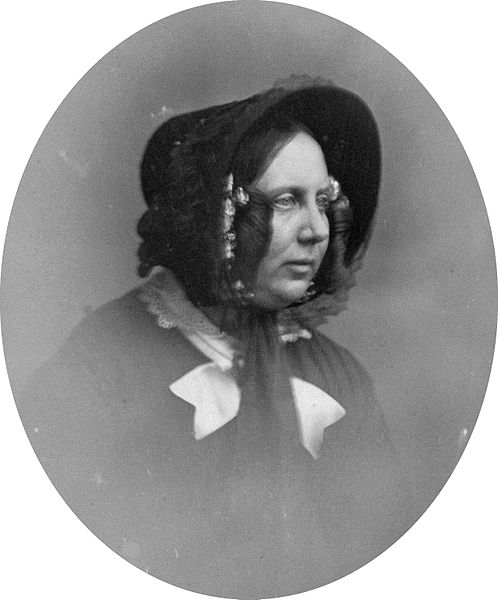 Dickens’ marriage and the secret infatuation that he had with Nelly Ternan wore Dickens out.
Dickens’ marriage and the secret infatuation that he had with Nelly Ternan wore Dickens out.



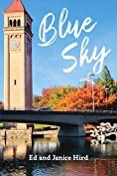 Sandy Brown and her family have just moved to Spokane, Washington where her husband, Scott, is pastoring a new church. With a fresh start, Sandy is determined to devote more time to her four children. But, within weeks of settling in their new life, the Brown family is plunged into turmoil.
Sandy Brown and her family have just moved to Spokane, Washington where her husband, Scott, is pastoring a new church. With a fresh start, Sandy is determined to devote more time to her four children. But, within weeks of settling in their new life, the Brown family is plunged into turmoil.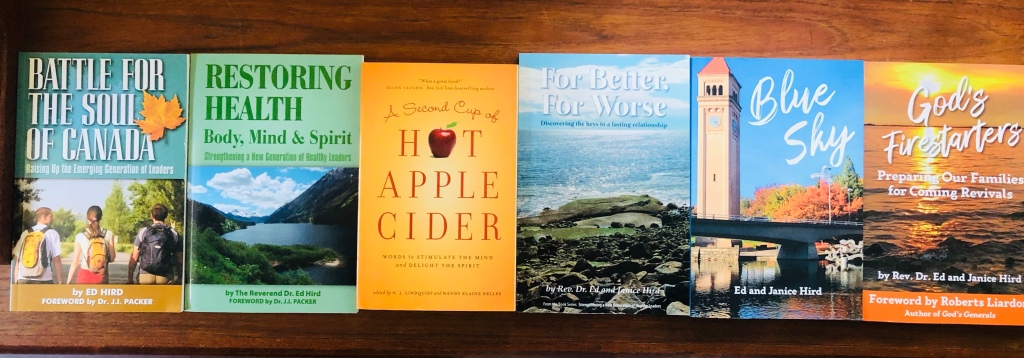
 By the Rev. Dr. Ed Hird
By the Rev. Dr. Ed Hird
 temperance. Franklin saw the Judeo-Christian ethic as “the best the world ever saw or is likely to see.”
temperance. Franklin saw the Judeo-Christian ethic as “the best the world ever saw or is likely to see.” that this lead poisoning was also affecting glazers, type-founders, plumbers, potters, white-lead makers and painters.
that this lead poisoning was also affecting glazers, type-founders, plumbers, potters, white-lead makers and painters. peace accord with Britain, and the Constitution. His unsuccessful proposal for the American Great Seal was to have Pharaoh being swallowed by the Red Sea, along with the words ‘Rebellion to Tyrants is Obedience to God.’
peace accord with Britain, and the Constitution. His unsuccessful proposal for the American Great Seal was to have Pharaoh being swallowed by the Red Sea, along with the words ‘Rebellion to Tyrants is Obedience to God.’ heard without amplification by over 30,000 people at one time. Franklin published all of Whitfield’s books and posted his sermons on the front page of his Philadelphia Gazette. Whitfield wrote to Franklin, saying: “As you have made a pretty considerable progress in the mysteries of electricity, I would now humbly recommend to your diligent unprejudiced pursuit and study the mystery of the new-birth. It is a most important, interesting study, and when mastered, will richly answer and repay you for all your pains.”
heard without amplification by over 30,000 people at one time. Franklin published all of Whitfield’s books and posted his sermons on the front page of his Philadelphia Gazette. Whitfield wrote to Franklin, saying: “As you have made a pretty considerable progress in the mysteries of electricity, I would now humbly recommend to your diligent unprejudiced pursuit and study the mystery of the new-birth. It is a most important, interesting study, and when mastered, will richly answer and repay you for all your pains.” At the 1787 American Constitutional Convention, Franklin commented: “the longer I live, the more convincing proofs I see of this truth — that God governs in the affairs of men. And if a sparrow cannot fall to the ground without His notice, is it probable that an empire can rise without His aid?” On that basis, Franklin arranged that prayers led by local clergy would be held each morning before Assembly business. Franklin said: “If I had ever before been an atheist, I should now have been convinced of the Being and government of a Deity!”
At the 1787 American Constitutional Convention, Franklin commented: “the longer I live, the more convincing proofs I see of this truth — that God governs in the affairs of men. And if a sparrow cannot fall to the ground without His notice, is it probable that an empire can rise without His aid?” On that basis, Franklin arranged that prayers led by local clergy would be held each morning before Assembly business. Franklin said: “If I had ever before been an atheist, I should now have been convinced of the Being and government of a Deity!”